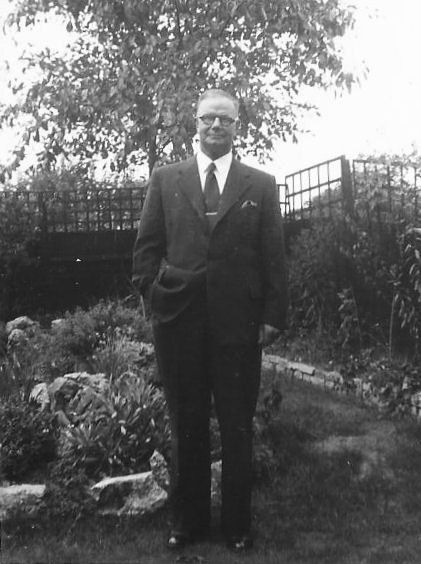|
2130/740881 Cyclist William Deeks 1/25th Cyclist Battalion, The London Regiment (subsequently 267508 Private Deeks 1/9th Middlesex Regt.)
William was born on 12th July, 1895 at 84 Bevington Road, Kensington to Henry William and Caroline Deeks. His father was an employee of the Electric Light Company but little else is known about him or his life until he enlisted at the age of nineteen years and six months. He would not discuss his family with his children although it appears likely that he had a brother and a sister, was keen on cycling and worked in the provisions trade as a shop assistant. He
was given No2130 on enlistment, 2130, later revised to 740881. His date of attestation was 27th January 1915. He spent the first part of his service in East Anglia on coastal patrols finally embarking on the H.M.T.Ceramic in 1916 bound for India.
During 1917 he travelled north to Burhan near Rawalpindi where he was granted proficiency pay on completion of 2 years embodied service and becoming either a marksman or a first class shot. From there into Waziristan and it was that part of his service in India that most frequent cropped up in conversation often mentioning Tank, and less frequently Baji Khel and Manzal. The privations encountered, to a listener, seemed more important than the Mahsuds or being shot at, the insects, flies, mosquitos, etc.,camels, particularly the stubbornness of the mules and the thirst. For most of his life he kept a cartridge case which contained potassium permanganate crystals which he would encourage his family to use for minor medicinal purposes and which he would apparently add to river water, scooped up on the march, to quench his thirst (and presumably to kill anything in the water). It was during this period , and perhaps later that he found the time to acquire a working knowledge of Urdu and for the rest of his life he kept his ‘munshi’ or his text books. Decades later in shops in Ealing he would engage in conversation with people from India or Pakistan.
In November 1917 at Gharial he was transferred to the 1/9th Middlesex and sent via Karachi to Basra in Mespotamia where he was to spend the rest of the war with the Mespotamia Expeditionary Force. He moved to Baghdad, where he took a Bombing Course, followed by a Lewis Gunner and also a Stretchers Bearers Course in Akab. Recollections of his conversations later are dominated not by fear of the Turks but by the difficulty in stopping the Arabs from stealing rifles while the soldiers were asleep, by flies, fleas and above all lice. On 23 April he received a cyclostyled letter of thanks from the Brigadier General Commanding 55th Infantry Brigade upon his demobilization and a travel warrant from Baiji to Balham, his home station.
William Deeks all his life was immensely proud of having served in the 1/25th and I fear that I have not done the memory of his service justice, I only wish I had paid more attention to his
stories.
|
|

On his return to England he resumed his work in retail provisions becoming a commercial
traveller. I did accompany him to a ceremony of the laying up of the colours in a church near Putney Bridge. His army experience was again demonstrated when my brother and I were called up for National Service and he repacked our kit and gave us useful guidance regarding volunteering and how to blow flies from your lips when on parade and at attention.
He retired to Worthing and died in 1975, his eightieth
year. He gave me his Bob Roberts Bible (in fact a small New Testament
sponsored by Field Marshal Roberts and given I believe to all servicemen
in the lst World War) which he had signed and carried throughout his
service.
[Courtesy of Arthur Malcolm Deeks (son of William)]
|